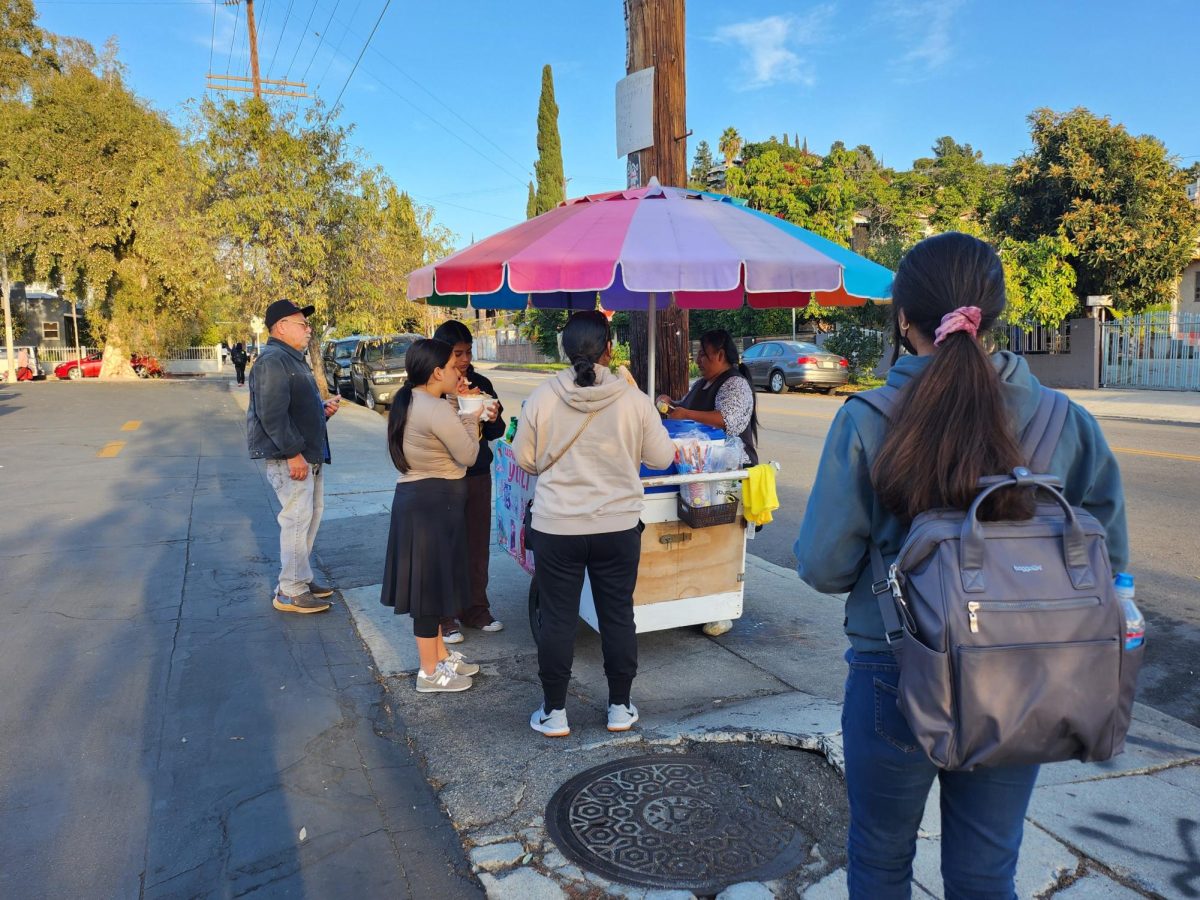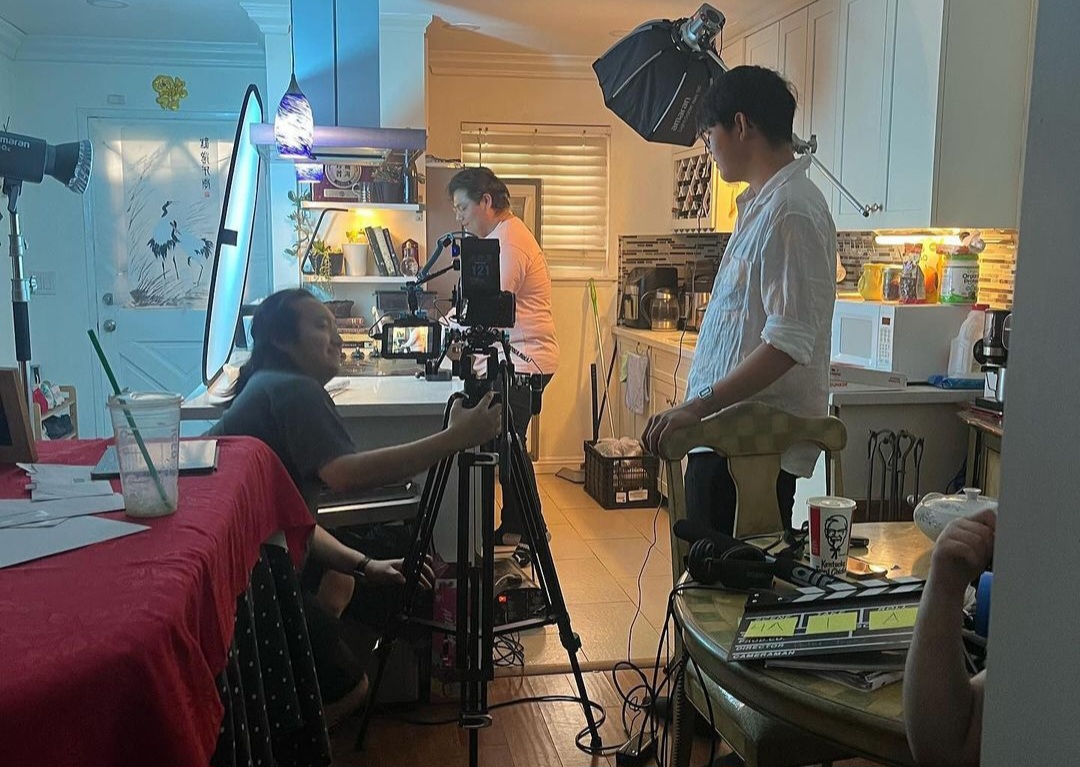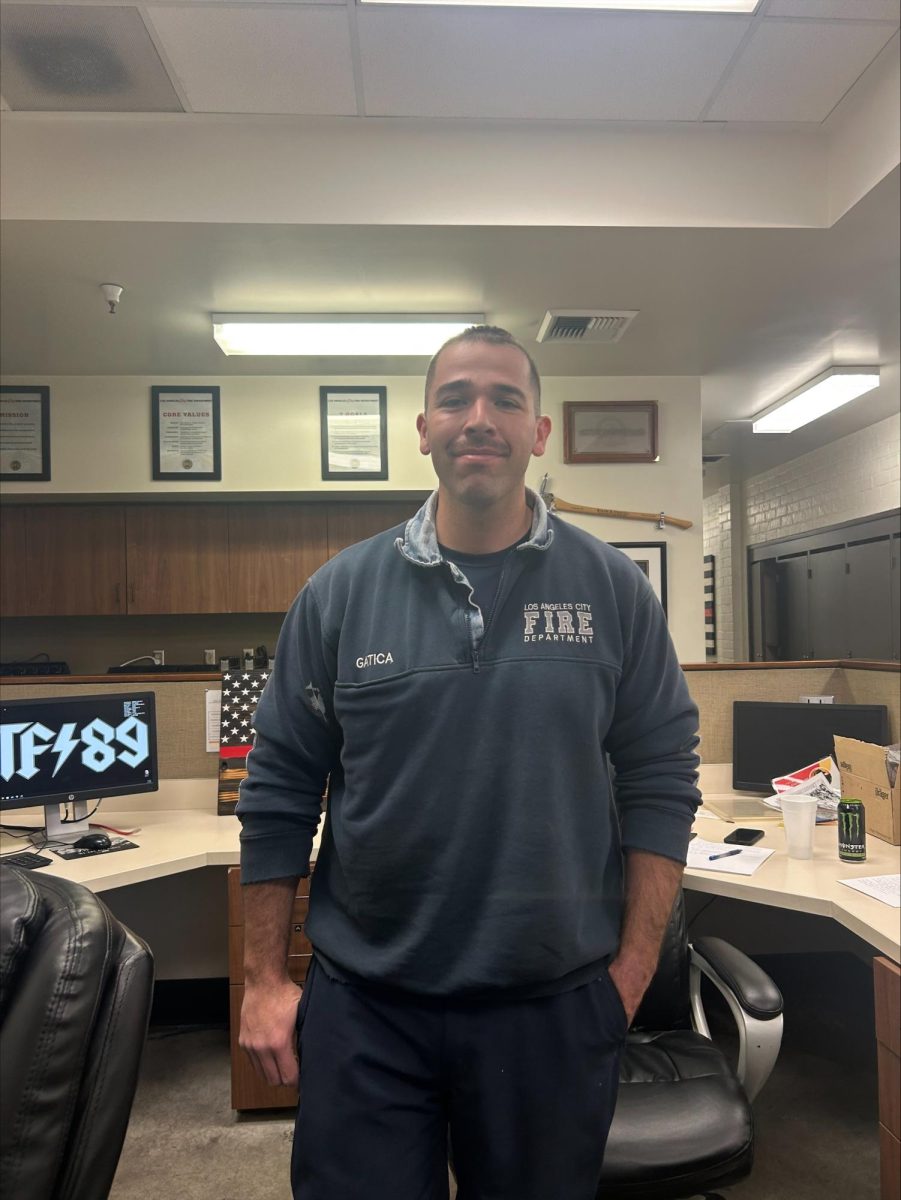Seventeen years ago, Esther Hernandez left her home country, Mexico, for a better life.
Street vending in Glassell Park provided that better life but when her husband fell ill, the life they built together seemed to end. It was a tough journey but for Esther, that was life. It was always hard.
There are about 10,000 street vendors registered with the city of Los Angeles, according to a report by the UCLA School of Law Community Economic Development Clinic and Public Counsel. Vendors face uncertainties like crime in the areas they set up shop and possible crackdowns from code enforcement on issues they may not be aware of. And former Gov. Jerry Brown introduced a law in 2018 banning criminal penalties for sidewalk vending and encouraging cities to establish permit programs for vendors. Many vendors still struggle with obtaining such permits because they’re missing many of the requirements needed such as pricey equipment.
Personal and health problems that surface for vendors like Esther and her husband, Julio, can exacerbate the dangers and safety issues vendors face.
Establishing herself
Esther, 40, recalled being part of a big, lively extended family growing up that got together every chance it got.
“We’d have lots of fun. And when there was a party, it would be with the whole family,” she said.
Although she was considered a troublemaker, she said she also had to be responsible as a caretaker of her two youngest siblings, who called her “mom.”
All her siblings completed college but Esther — which, ironically, was the very reason she came to the U.S.
She couldn’t finish her schooling in Mexico because students had to pay for everything there and she knew her parents would have to struggle a lot to make that happen.
In Los Angeles, she stayed with a family member but felt unwelcomed. “I thought they’d at least give me a room to sleep in but, no, they made me sleep on the floor,” she said, adding there were many other restrictions imposed on her when staying there.
There were many nights she cried, wondering if she should return to Mexico. But she tried to focus on her future and hopefully, someday, making her family proud.
She worked many different jobs in those early years and cleaning homes was one of the better ones.
“That’s also hard work. They will pay you but sometimes there were customers who wouldn’t like how you did it or they’d want you to use a specific kind of cleaning supply” or have other complaints, she said.
One day, a neighbor suggested selling elotes and rasapados as a street vendor.
Esther worried that people who knew her family in Mexico would see her and look down on her for selling items on the street.
“How am I going to be selling? Everyone will see me,” she recalled thinking.
She finally convinced herself, realizing she could be her own boss that way. “I’m gonna give it my all,” she thought.
A tough start
The first year was the hardest.
“There were even times where I’d walk the whole street and I wouldn’t sell even one thing,” she said.
It was discouraging but she noted what sold, what didn’t and where certain items were more popular.
Occasional criminal activity on the streets and the fear of operating without a permit were additional challenges.
She remembers feeling grateful for warnings from some other vendors like one time when she said, “A fruit vendor was there and they started taking away their things. So they told us to be careful because the health inspector is down there.”
Eventually, she found success selling elotes and raspados in front of a local elementary school and her husband Julio helped by covering another good route. Over the course of one year selling at that same spot, she got to know the community and the people in the neighborhood.
One of their regulars, 17-year-old Marie Ana Vargas, said when she was growing up, she recalled Esther was always “kind and very open to everyone. … Not only have I built a connection with her but many others as well.”
“My customers I’ve known since they were kids and now they’re so big,” she said. “Sometimes other people who aren’t blood-related to you help you more than your family…For me, they’re my family.”
Life was finally not just easy, but good for Esther, Julio and their daughter, then 10. They had each other and a community.
Changes ahead
But the 2020 global pandemic changed a lot for everyone and it was no different for the Hernandez family.
“We couldn’t even go out to work and watching the news made me panic,” Esther said, recalling thinking, “So how am I gonna do this? How will I live if I’m not working?”
Then, worse news hit: Julio’s leg was swollen due to an infection he had.
Doctors surgically removed the infection and told him it would heal.
But a week after being discharged, he noticed two small black dots on his leg.
Doctors examined it and found that the bone underneath was already dead.
“It didn’t work anymore and I couldn’t feel it,” Julio said.
A rehabilitation center, Rancho Los Amigos, reached out to help. “I thought they’d have me there for a while to give me medicine and my leg would be saved, but no,” he said.
His infection had gotten worse so the surgeon knew that the best option was to cut off the part of his leg that was infected so that it wouldn’t spread.
“They said to sign the papers and I told them I wasn’t going to sign,” he said.
Shocked, he called his wife and told her doctors said that they have to amputate part of his leg. She quietly cried. She had no other thoughts but of his health and told him that he should go along with the surgery.
Esther felt very alone: “It was a moment where the world had crashed for me.”
After a long silence, she said, “If it’s for your health, sign them.”
He followed her advice.
“From the time I was there and they cut my leg and I got out of surgery my mind started working right away,” Julio recalled. “I was thinking, ‘Now I’m useless. I won’t be able to walk. I won’t be able to work like I should. I’m gonna be in bed the whole time laying down. What am I going to do?”
All he could do physically now was cry.
“I’d look at one leg and the other, I’d get really emotional to see that my legs weren’t the same,” he said. “You walk normally everyday, so to just go on crutches from morning to night is very difficult. I wouldn’t wish this upon anyone.”
That’s when he fell into a deep depression.
“One time he opened the car, tried getting on and he fell. I just heard screaming, so I went out and he was on the floor in the street and so one of my neighbors helped me pick him up,” Esther said.
She found out later that it wasn’t a simple accident: “Because of his frustrations, he wanted to hurt himself.”
Esther and their daughter, Karla, then 11, was distraught seeing Julio that way. Thankfully, Karla said she was too young to fully understand it: “For me, it felt a little sad and I was a little worried.”
Julio’s doctor recommended therapy. His first response: “I’m not crazy so I don’t need therapy.”
The doctor explained it could help get rid of his negative thoughts and pointed out that his family needs him to be healthy.
“Look, you have your wife, your daughter…If you go down, they do, too, they’ll see you thrown and they, too, won’t be able to do anything,” Julio recalled the doctor saying.
“Well what can I do if I can’t do anything anymore?” he responded.
“Look, think of them and nothing else. Your daughter needs you now. Later, when she’s older, she can defend herself…and your wife, too, but your daughter will suffer a lot because she’s still small,” the doctor said.
Julio ultimately agreed to try therapy.
After two years of therapy, Julio is mentally much stronger.
He got a prosthetic in 2021 and soon after, was back on the streets, selling with Esther.
It’s not the same as before but Esther is thankful for what they have: “The three of us are together anywhere we go. None of us are sick or anything and that’s a win.”
“We thought there was no end,” Esther said. “We are now on the other side. Like they say, there’s always light at the end of the tunnel.”







